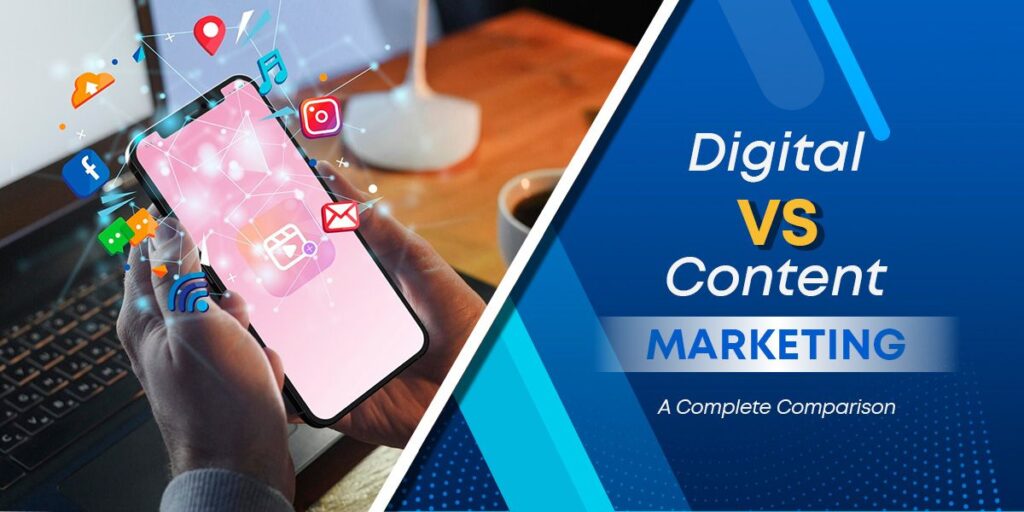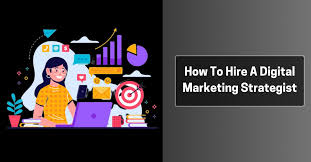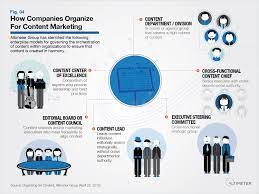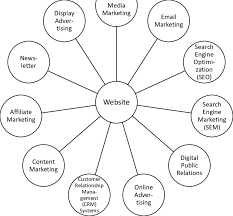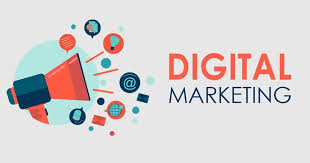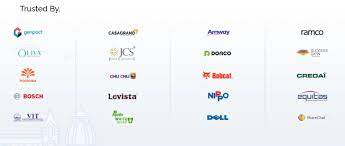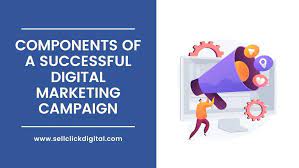The 5 S’s of Digital Marketing: A Comprehensive Guide
In the ever-evolving landscape of digital marketing, understanding the core principles is essential for success. One such framework that serves as a foundation for effective digital marketing strategies is the 5 S’s model. Let’s delve into each of the 5 S’s to gain insights into how they can shape your digital marketing efforts.
Strategy
Strategy forms the backbone of any successful digital marketing campaign. It involves setting clear objectives, identifying target audiences, and outlining the tactics to achieve your goals. A well-defined strategy helps align your efforts towards a common purpose and ensures that every action contributes to your overall objectives.
Segmentation
Segmentation involves dividing your target audience into distinct groups based on shared characteristics such as demographics, behaviours, or preferences. By segmenting your audience, you can tailor your messaging and content to resonate with specific groups, increasing engagement and conversion rates.
Search Engine Optimization (SEO)
SEO plays a crucial role in enhancing your online visibility and driving organic traffic to your website. By optimising your website content for relevant keywords, improving site structure, and earning quality backlinks, you can improve your search engine rankings and attract more qualified leads to your business.
Social Media Marketing
Social media platforms offer a powerful channel for engaging with your audience, building brand awareness, and driving traffic to your website. Effective social media marketing involves creating compelling content, engaging with followers, and leveraging paid advertising to reach a wider audience and achieve your marketing objectives.
Measurement & Analytics
Measurement and analytics are essential for evaluating the performance of your digital marketing efforts and making data-driven decisions. By tracking key metrics such as website traffic, conversion rates, and engagement levels, you can identify areas for improvement, optimise campaigns in real-time, and maximise the return on investment (ROI) of your marketing activities.
By incorporating the 5 S’s of digital marketing into your strategy, you can create a cohesive approach that drives results and helps you stay ahead in today’s competitive digital landscape. Remember that continuous learning and adaptation are key to mastering these principles and achieving sustainable growth in the digital realm.
Understanding the 5S Framework and Key Concepts in Digital Marketing: FAQs
- How do you set goals in digital marketing?
- What are 5d where digital marketing revolves?
- What are the 5S in digital marketing?
- What are the 5’s of marketing approach?
- What is the 5S framework?
- What are the 7 C’s of digital marketing?
- What is the 5S methodology in marketing?
- What is the goal of digital marketing?
How do you set goals in digital marketing?
Setting goals in digital marketing is a crucial step towards defining the direction and success of your campaigns. To establish effective goals, start by aligning them with your overall business objectives. Consider what you aim to achieve, whether it’s increasing brand awareness, driving website traffic, generating leads, or boosting sales. Your goals should be specific, measurable, achievable, relevant, and time-bound (SMART). By setting clear and realistic targets, you can track progress, evaluate performance, and make informed decisions to optimise your digital marketing efforts for maximum impact.
What are 5d where digital marketing revolves?
The 5 D’s that form the core of digital marketing are Strategy, Segmentation, Search Engine Optimization (SEO), Social Media Marketing, and Measurement & Analytics. These fundamental pillars encompass the essential elements of a successful digital marketing campaign. Strategy guides the overarching plan, Segmentation targets specific audience groups, SEO boosts online visibility, Social Media Marketing engages with audiences on various platforms, and Measurement & Analytics provide valuable insights for refining strategies and maximising performance. Understanding and implementing these 5 D’s are crucial for businesses looking to thrive in the digital landscape and achieve their marketing objectives effectively.
What are the 5S in digital marketing?
The 5S in digital marketing refer to Strategy, Segmentation, Search Engine Optimization (SEO), Social Media Marketing, and Measurement & Analytics. These five pillars form the foundation of a successful digital marketing strategy. Strategy involves setting clear objectives and tactics, Segmentation helps in targeting specific audience groups, SEO enhances online visibility, Social Media Marketing drives engagement, and Measurement & Analytics provide insights for continuous improvement. Understanding and implementing the 5S of digital marketing can help businesses effectively reach their target audience, increase brand awareness, and achieve measurable results in the digital realm.
What are the 5’s of marketing approach?
The 5 S’s of marketing approach encompass Strategy, Segmentation, Search Engine Optimization (SEO), Social Media Marketing, and Measurement & Analytics. Each ‘S’ represents a fundamental aspect of digital marketing strategy that collectively contribute to the success of a campaign. Strategy involves setting clear objectives and tactics, Segmentation focuses on understanding and targeting specific audience groups, SEO enhances online visibility, Social Media Marketing engages with audiences on various platforms, and Measurement & Analytics provides insights for data-driven decision-making. By incorporating these 5 S’s into their marketing approach, businesses can create a comprehensive strategy that maximises their online presence and drives meaningful results.
What is the 5S framework?
The 5S framework in digital marketing refers to a strategic model that encompasses five key elements essential for effective marketing campaigns. These elements, namely Strategy, Segmentation, Search Engine Optimization (SEO), Social Media Marketing, and Measurement & Analytics, form the foundation of successful digital marketing initiatives. By understanding and implementing each component of the 5S framework, businesses can develop targeted strategies, engage with their audience effectively, improve online visibility, leverage social media channels for brand promotion, and measure the performance of their campaigns to drive continuous improvement and achieve desired outcomes in the digital realm.
What are the 7 C’s of digital marketing?
The 7 C’s of digital marketing are a set of principles that provide a comprehensive framework for understanding and implementing effective marketing strategies in the digital realm. While the 5 S’s focus on key elements such as strategy, segmentation, SEO, social media marketing, and measurement, the 7 C’s delve deeper into aspects like content, context, consistency, community, customization, communication, and conversion. By considering these additional factors, businesses can create more engaging and personalised experiences for their target audience, ultimately driving greater success in their digital marketing efforts.
What is the 5S methodology in marketing?
The 5S methodology in marketing refers to a structured framework that encompasses Strategy, Segmentation, Search Engine Optimization (SEO), Social Media Marketing, and Measurement & Analytics. Each ‘S’ represents a key aspect of digital marketing strategy and implementation. Strategy involves setting clear objectives and tactics to achieve marketing goals, while Segmentation focuses on dividing target audiences into distinct groups for tailored messaging. SEO aims to improve online visibility through optimisation techniques, and Social Media Marketing leverages platforms for engagement and brand awareness. Measurement & Analytics play a crucial role in evaluating performance and making data-driven decisions for continuous improvement in marketing efforts. By following the 5S methodology, marketers can create effective campaigns that resonate with their audience and drive measurable results in the digital landscape.
What is the goal of digital marketing?
The goal of digital marketing is to leverage online channels and technologies to reach and engage with target audiences, ultimately driving desired actions that align with the overarching business objectives. Whether it’s increasing brand awareness, generating leads, driving website traffic, or boosting sales, the primary aim of digital marketing is to deliver measurable results and create meaningful interactions with customers in the digital realm. By crafting strategic campaigns, optimising online presence, and utilising data-driven insights, businesses can effectively connect with their audience, build relationships, and achieve sustainable growth in today’s competitive digital landscape.

